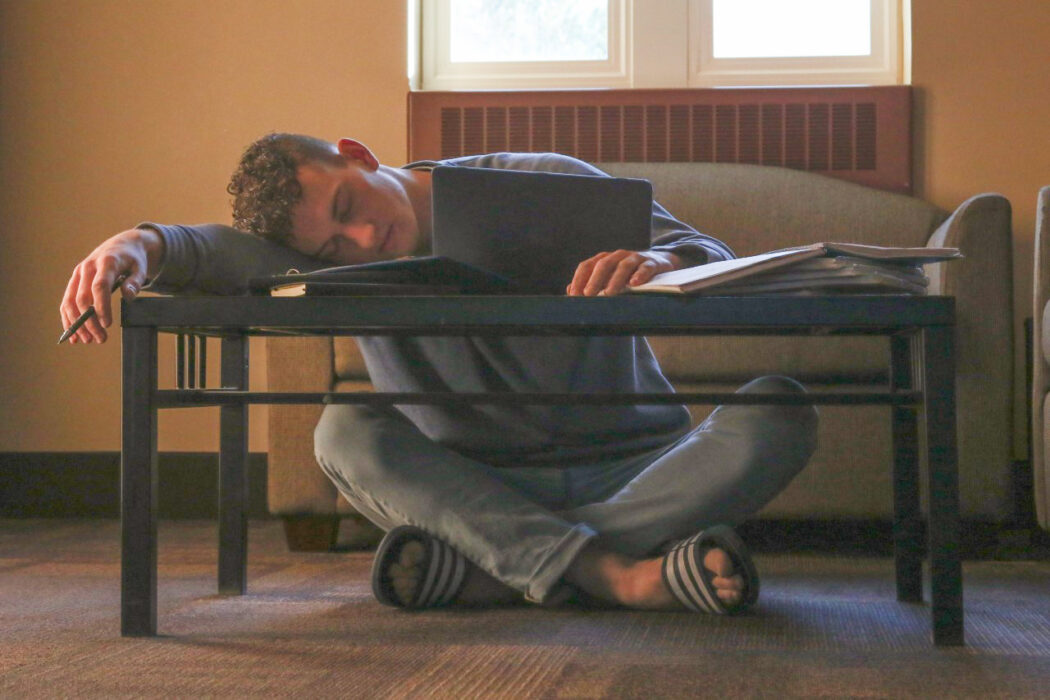It’s beginning to look a lot like finals
Despite the long-standing tradition of all-encompassing exams at the end of each semester, many students question their efficiency, and some professors have begun taking different approaches to the looming assignments.
Many college students are very familiar with the rigorous hours of study, sleepless nights, and stressful days that come with final exams at the end of each semester, and the students at Utah State University are no exception.
Yet, instead of traditional approaches to final exams, several professors have begun using different methods to give end-of-semester assignments.
One student who has experienced some of these unique approaches is Sierra Kline, a USU senior majoring in international relations.
“Technically I do have a final for each class, but it is different this year,” Kline said. “In two of my classes, instead of doing a final paper, we are doing a final podcast project, which has made this semester a lot easier. I definitely learn more if the final is not your typical, standard test.”
Like many students, Kline has also felt the immense pressure that can come with final exams.
“I generally get a lot more stressed around finals, and more sad,” she said.
Susan Polster, the department head of Journalism and Communication at USU, shares similar views on final exams and the impact they can make on students’ mental health.
“In some classes, final exams are important,” Polster said. “In the subject I teach, memorization of details is not as important as remembering basic concepts. The students write about concepts all semester so testing on them seems pointless.”
Polster also believes final exams to be another stress that can weigh on students, bringing them closer to their mental breaking point.
Going beyond how she feels about final exams being unnecessary in her subject, Polster added her concern at the economic disadvantage final exams can give to certain students.
“Economics have a lot to do with success in higher education,” Polster said. “If a student comes from a disadvantaged family, working many hours is a necessity and oftentimes gets in the way of studying adequately for tests. Many USU students — over 30% — have food insecurities which may affect their ability to successfully take tests. First-generation students often do not come equipped with the educational background to succeed in test taking.”
Though papers, podcasts, projects and other assignments may be beneficial replacements for final exams, there are some benefits to keeping the traditional form of a final.
According to Polster, some courses require final exams in order for those enrolled to be licensed in their chosen profession.
Boone Fields, a student at USU working to get his associate’s degree, sees other benefits to finals, though he understands how they can be an issue for students.
“Finals make or break your grade,” Fields said. “You can have a great semester and then a final can completely tank your grade, and that’s all this money that you’ve saved up or gone in debt for can be ruined in a single test, so it’s immensely stressful.”
While Fields sees the financial stress that can be put on students who stake hard-earned grades on finals, he also understands how the tests can provide a reasonable and powerful incentive.
“I think that a test is a really good impetus to get someone thinking about their goals and learning the material, but I do have a problem in that sometimes I think that university students learn for a test, we don’t learn the subject,” he said. “There’s a point where you ask if you are actually learning or if you are just stressed out about a test.”
-Brock.Marchant@usu.edu

